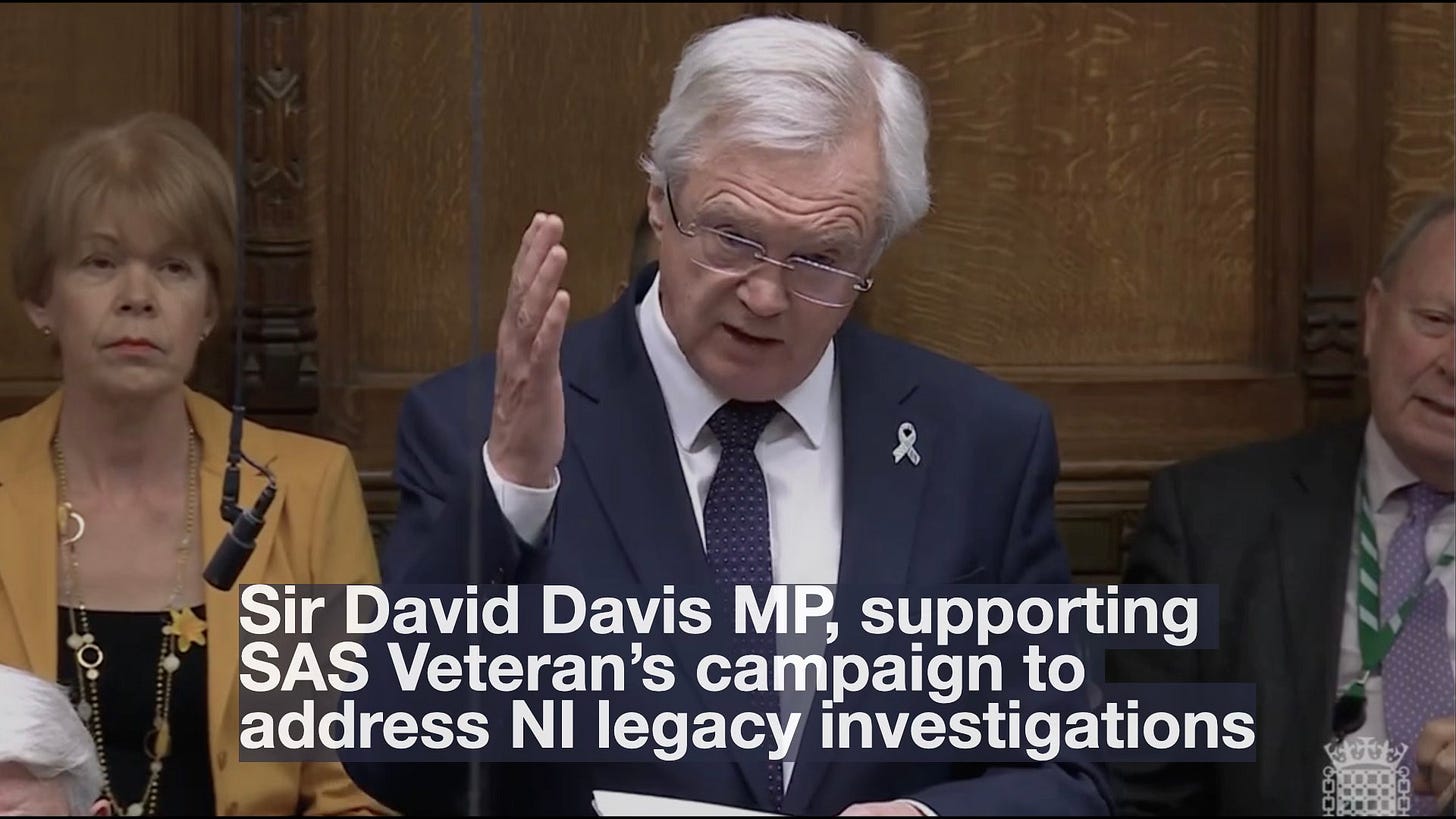SAS Veterans Launch Campaign Over "Unbalanced" Troubles Investigations
Special Forces Association challenges Human Rights Act interpretation in Northern Ireland legacy cases, coordinating nationwide MP letter-writing effort
The Special Air Service Association has initiated a coordinated campaign encouraging its members to write to their MPs regarding concerns over the government's approach to Northern Ireland Legacy cases.
The Association, which supports Who Dares Wins regiment veterans, has provided members with template letters and detailed guidance for contacting their parliamentary representatives. The move comes amid growing frustration over what the Association describes as an "unbalanced approach" to investigating historical cases from the Troubles.
Members have been offered three options for participation, accounting for varying levels of privacy requirements. These range from full identification to anonymous submissions, with special provisions for those directly involved in ongoing cases or who served in Northern Ireland.
The campaign specifically addresses concerns about the interpretation of Article 2 of the European Convention on Human Rights and its application to historical cases. The Association emphasises that letters should focus on the broader impact of legacy investigations on veterans while avoiding operational specifics.
A secure system has been established to track communications with MPs, with the Association acting as an intermediary where required. All correspondence will be coordinated with Sir David Davis (Conservative) MP's office.
The initiative forms part of a wider effort by military associations to influence government policy on the handling of historical cases from the Troubles, with the SAS Association joining other regimental organisations in this approach.
Article 2 Interpretation in Northern Ireland Legacy Cases
The Special Air Service Association has raised significant concerns about the application of the Human Rights Act 1998 to historical cases from the Northern Ireland Troubles, particularly regarding Article 2 of the European Convention on Human Rights.
In a detailed briefing to its members, the Association highlights what it describes as "muddle-headed" legal interpretations that require "exactly the same legal protections that are rightly expected by the victims of terrorism must be applied equally to the perpetrators of terrorism."
The Association argues that this creates a fundamental conflict of interests for the government. As they note in their guidance: "How does the Government resolve the fundamental conflict of interests? To protect the weak; to uphold the law; to safeguard all its citizens; but fundamentally to protect us all from terrorism. It may simply not be possible to do all of this for all of the people all of the time."
Of particular concern is the retrospective application of the Act to operations conducted before its implementation. The Association emphasises that these historical cases are now being "re-examined through the prism of the Human Rights Act 1998," despite the fact that "the Human Rights Act 1998 wasn't even in force at the time of these operations."
While acknowledging that "every citizen should enjoy the protection of the law" and that "no-one should be killed summarily," the Association questions whether protecting the rights of those who were "dedicated to overthrowing the law" might inadvertently enable further oppression of other citizens' rights.
The Association's position underscores a broader debate about how to balance human rights obligations with national security considerations in addressing legacy issues from the Troubles.
For further information, visit: https://www.marsandminerva.co.uk/



We have disgusting politicians of both main parties who have allowed this to continue.